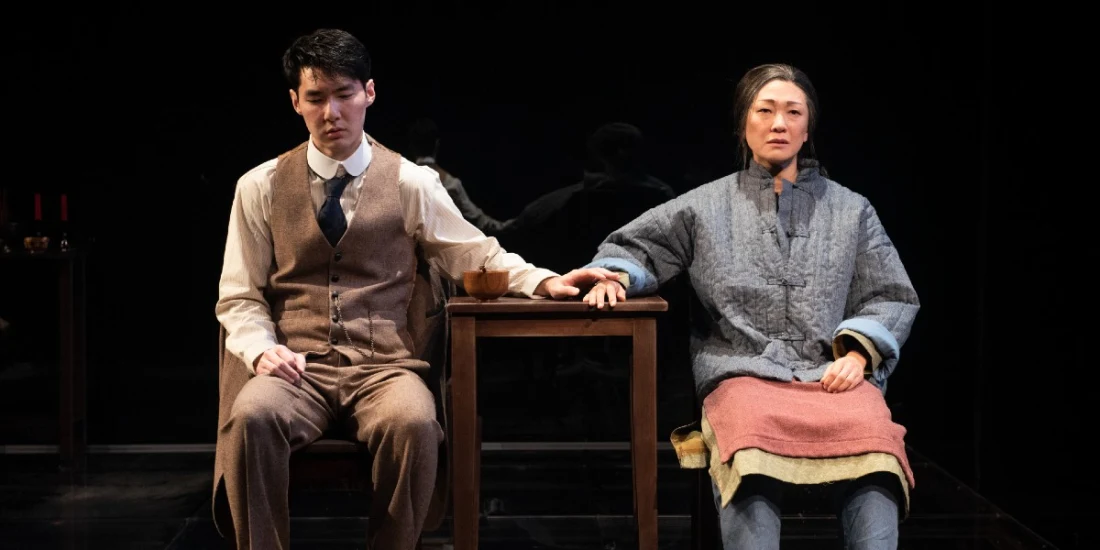'The Far Country' review — found-family drama sheds light on a dark slice of American history
As you settle in at Lloyd Suh’s The Far Country, you’ll see a figure seated on stage. Facing away from the audience and still as a statue, he’s been perched there since the audience was allowed in. He sits. And sits. And sits.
This staging suggests detention and waiting figure prominently in this intriguing yet sometimes elusive drama about people from Taishan, China, whose lives intertwine to form a family.
In 1909 San Francisco, stone-faced officials grill Gee (Jinn S. Kim, the pre-show sitter). They’re questioning his status as a native-born American. Gregarious and a bit goofy, Gee must convince them of his citizenship to briefly return to Taishan to visit his wife. He says they wed in 1893 and have three kids. He hopes to bring his son back to California to work with him at his laundry.
That won’t be easy. In the spring of 1882, Congress passed the Chinese Exclusion Act, which banned Chinese people from coming to America. Gee’s interview ends and the scene shifts forward in time to Taishan. Gee’s demeanor has done a 180-degree turn. No longer meek and mild, he’s calculating and in control. Was everything he told officials a lie? Seems so.
He’s making a deal with no-nonsense Low (Amy Kim Waschke) in order to bring her teenage son, Moon Gyet, (Eric Yang) to San Francisco as his own son. Defying the law carries high risk and a steep price. That includes Moon Gyet giving up his name and identity.
The scene shifts to the Angel Island Detention Center in San Francisco Bay, where Moon Gyet, who now goes by Gee Lip Lun, is 63 days into what ends up being a 17-month stay. Interrogators question him relentlessly, looking for a tiny inconsistency that will get him shipped back to China.
Compliant and self-contained, the teen responds to each query. An inspector concludes that detainees answer every question because “they are always lying.”
The scene flashes forward once more to Taishan, where Moon Gyet has a wrenching reunion with Low. He’s there, he tells her, to “sell my name” to someone who’ll pay to accompany him to San Francisco. He needs money to pay off Gee, who helped pull strings enabling him to stay in the U.S.
Yuen (Shannon Tyo), pragmatic but optimistic, agrees to come to America and be his wife and bear his children. Despite discrimination, detainments, and deceptions, an unlikely but true family emerges.
One of Suh’s strengths is his ability to mix realism and poetic elements. He uses that here as he shines a light on a dark slice of American history and builds a play around it. The timeline could be clearer, along with an indication of why these Chinese men and women risked so much to be in the U.S. They faced so many hardships there.
In this Atlantic Theater Company presentation, director Eric Ting guides a uniformly excellent cast. Tyo, seen previously in Suh's The Chinese Lady, about a different fraught journey from Asia to America, arrives well into the play and shifts the story into high gear.
There’s fine work by the design team, including Clint Ramos, whose spare but striking set reveals some surprise elements the director employs. So why were actors suddenly standing up to their ankles in water? I have no idea, and that’s no lie.
Photo credit: Eric Yang and Amy Kim Waschke in The Far Country. (Photo by Ahron R. Foster)
Originally published on
